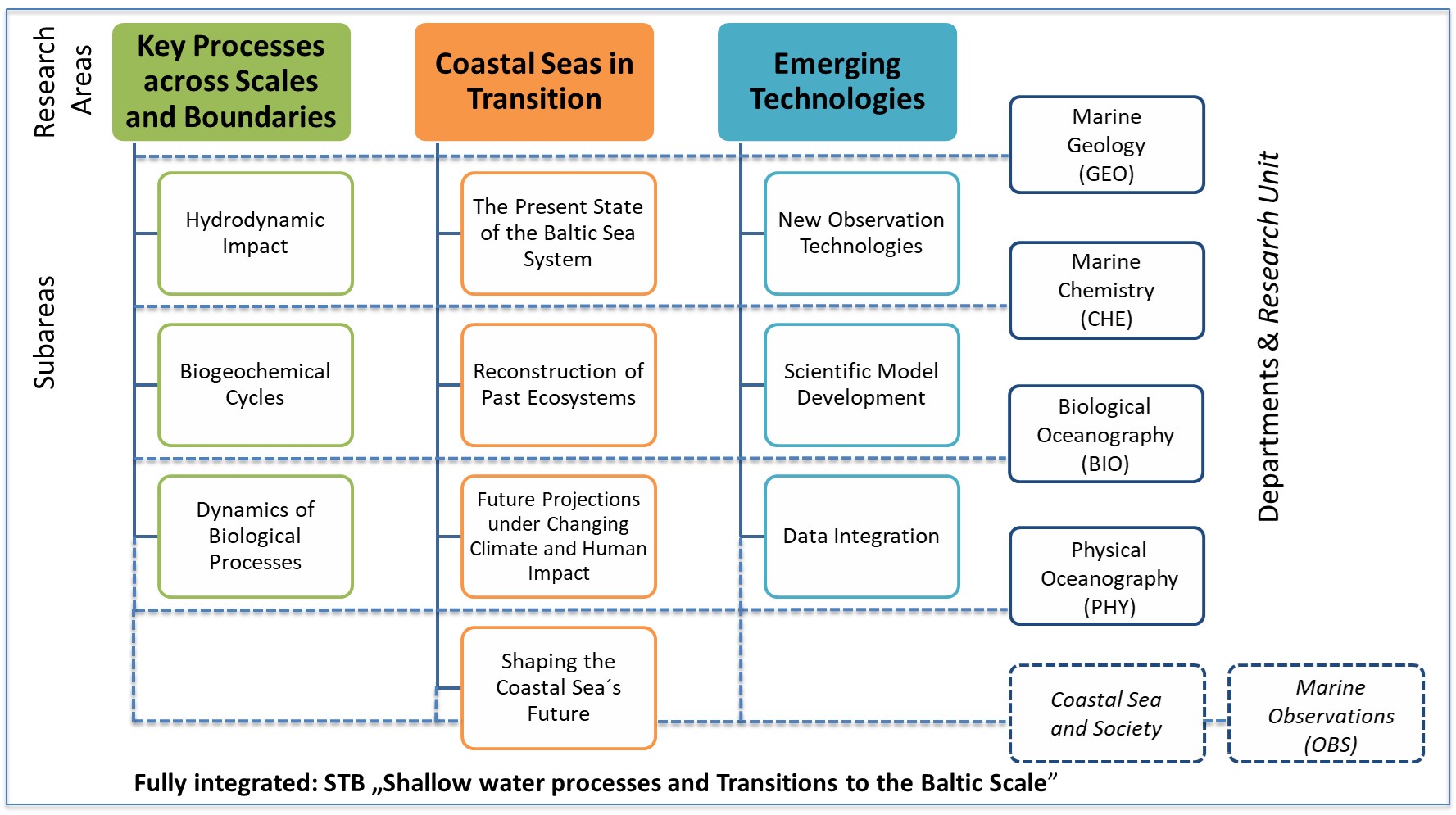
IOW Research programme 2024-2033 „Perspectives of Coastal Seas“
The IOW studies Coastal and Marine Systems in a holistic and interdisciplinary approach in comparative study areas. A regional focus is on the Baltic Sea System, which – among other research activities on coastal systems abroad – represents a unique model region for fostering in-depth process understanding, upscaling and eventual global perspectives. To understand processes, patterns and functioning of coastal seas and their interactions, the IOW examines the dynamics of natural changes and variabilities as well as human impacts on it in the past, present and future. Towards this goal biological, chemical, geological and physical aspects are studied. Fundamental and applied-oriented research is conducted by ship-based in-situ experiments and long-term observation programmes as well as strong research facilities and instrumentation at the institute. The most important research infrastructure operated and owned by IOW is the research vessel Elisabeth Mann Borgese. Data-driven research is used for model development and assessment, and also for novel integrated modelling approaches (e.g. ocean, biogeochemical, hydrodynamic, atmospheric models). Moreover, the IOW is engaged in supporting the socio-ecological transformation of the society towards sustainability and resilience by various transfer channels, dialogue formats and science-based recommendations.
The IOW Research Programme 2024-2033 builds on the institute’s statute (only available in German) and on the results and the increase of fundamental scientific knowledge gathered in marine and coastal research at the IOW over the last decades with the previous research programmes, strengthening the development of new perspectives and addressing research needs with a transfer potential towards societal demands. Our vision is to provide Perspectives of Coastal Seas as a whole and - through scientific knowledge, innovative methods and dialogue with society - to contribute to solving regional and global challenges.
Our new research programme is structured along three research areas (see Figure 1 ), addressing open questions in “Key Processes across Scales” (Research Area 1), “Coastal Seas in Transition – Present, Past and Future Perspectives” (Research Area 2) and “Emerging Technologies” (Research Area 3). An important new step compared to the previous programme is its additional orientation towards the shallow water processes between the coastline and a water depth of about 10-20 m. All the scientific and technical staff involved in developing the measurement strategies and technological equipment needed for coastal ocean observation are bundled in the research unit “Marine Observations” (OBS). The overall structure of the IOW 10-year Research Programme will follow the well-established matrix approach, where all departments and the new organisational unit OBS contribute to the three Research Areas. As a new tool to address specific topics in an agile way and on shorter timescales, we are introducing the so-called Baltic Challenges. They bundle research activities within the three research areas that are suitable for making progress on specific emerging topics of interest for the Baltic Sea.
Research programme 2024-2033
